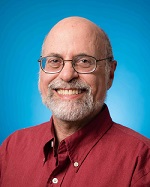Date: Thursday, July 30, 2015
Category: Blog

We all know that aging is an important topic these days, as was underscored at our recent conference’s plenary session on “Assistive Technology in a Global Community.” Representatives from the World Health Organization and RESNA’s sister organizations in Europe (AAATE) and South Korea (RESKO) all spoke about the aging of the world-wide population and the related challenges and opportunities for assistive technology professionals.
Assistive technology is generally defined as items and services “used to increase, maintain, or improve functional capabilities of individuals with disabilities." Along these same lines, RESNA is “dedicated to promoting the health and well-being of people with disabilities through increasing access to technology solutions.” That’s all well and good, until you stop to consider that most people who are older or “aging” and who are experiencing functional limitations do not consider themselves as having a disability, even when their need for assistance becomes significant. Likewise, many domestic and international groups and organizations maintain a distinction between the aging and disability sectors. At the same time, the AT needs of the elderly is an increasingly common theme for conferences, discussion groups, and research initiatives; and they are surely on the priority list of product developers and service organizations. Would we be more inclusive by always referring to aging as well as disability?
Or why not, as some have suggested, drop the reference to “disability” within RESNA and just use a more inclusive term, such as “functional limitations?” Although this or a similar term may be technically accurate, what would it mean for people who identify themselves as disabled? I posed this question to Jessica Lehman, Executive Director of
San Francisco’s Senior and Disability Action, a group that mobilizes and educates seniors and people with disabilities to fight for individual rights and social justice. Her response was that people with disabilities have worked hard to establish their identity as a social grouping and for the acknowledgement of their particular needs, and many would not want to risk losing that by adopting a broader and more generic label. She felt that the technology needs of older folks and those with disabilities can be addressed and advocated for, without merging their identities. A good friend and disability consultant agreed and said, “Both groups are looked down on and discriminated against in our culture, which can bring them together, but our experiences remain very different.”
With all that in mind, my questions and challenges to RESNA members are:
- Should we adopt new language and speak about “people with disabilities and those who are aging” when referring to the design, use, and funding of AT?
- Should we go broader and speak about “people with functional limitations?”
- Should we be focusing more as an organization on the aging population?
- If so, what would that look like?
Ray Grott, MA, ATP, RET
August 5, 2015